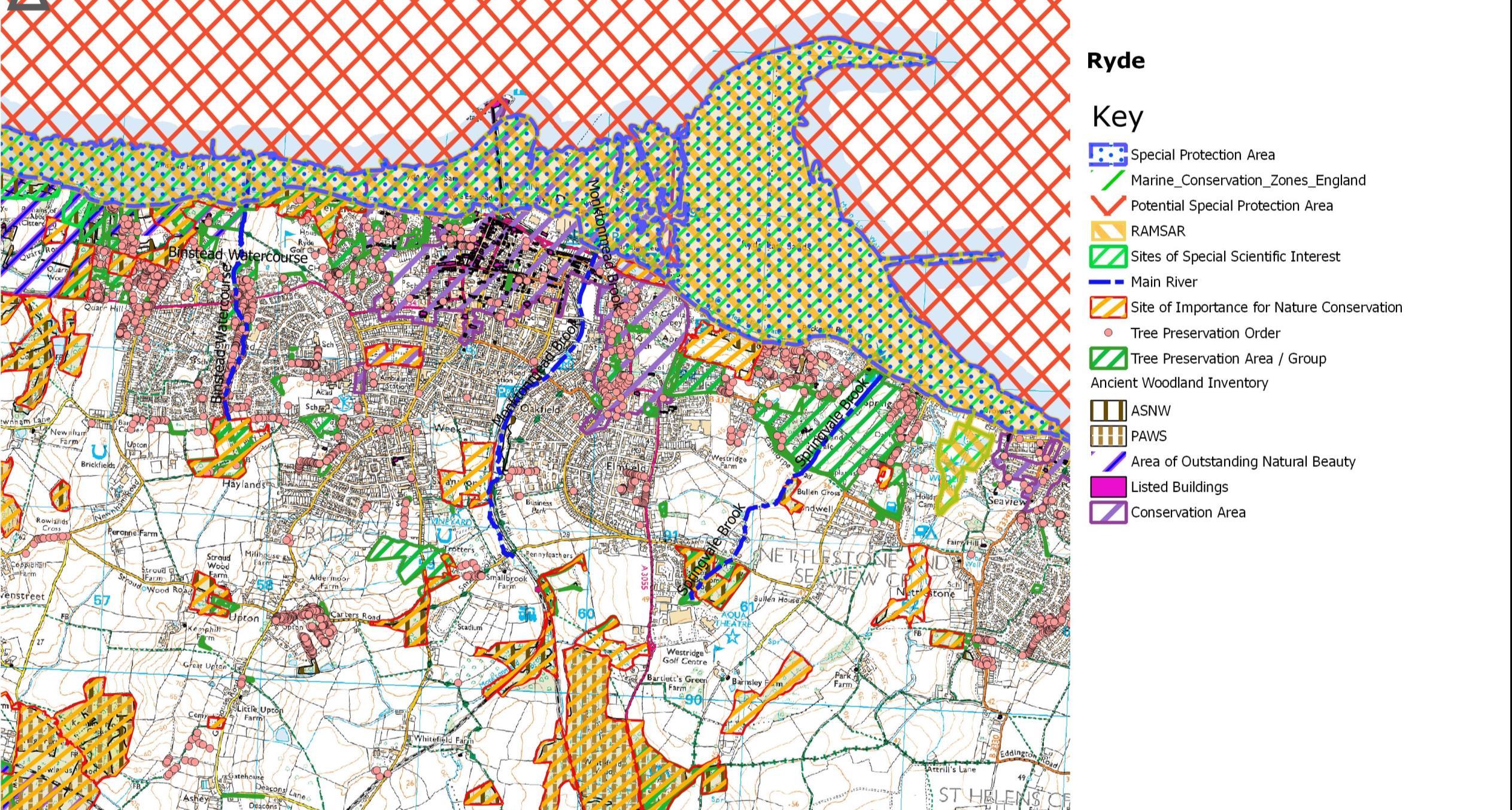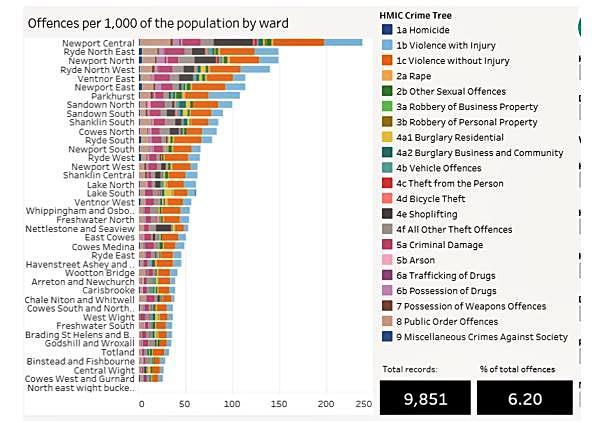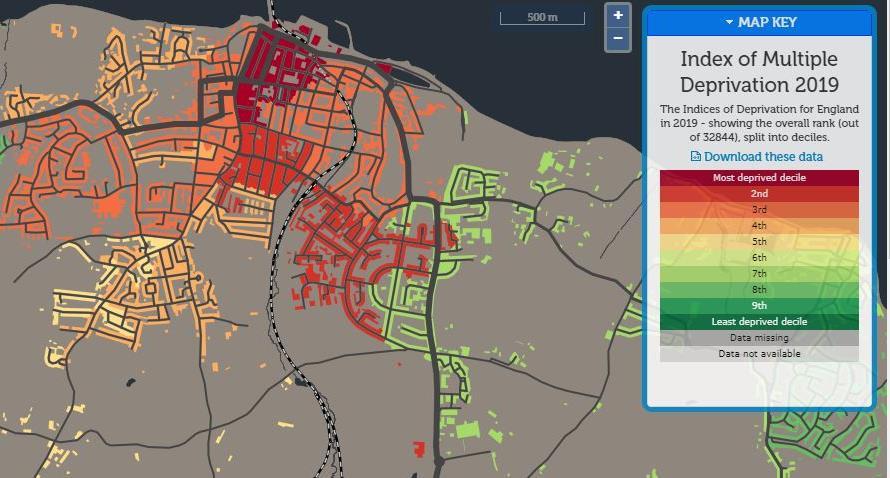
4 minute read
COMBINING BUILT AND NATURAL HERITAGE
• When these environmental designations are combined, they reveal Ryde’s exceptionally rich natural and cultural landscape, encompassing the heart of the town.
• This unusual concentration of cultural and natural capital, overlapping large areas of Ryde’s residential and business community, represents an untapped resource that can support positive socio-economic change, an approach validated by the 2019 IWC Regeneration Strategy and by the current draft Solent Local Industrial Strategy.
• The Biosphere designation awarded to the Island on June 19th 2019, actively supports this strategy for sustainable development. Ryde has the potential to be exemplary in its positive and active engagement with the 3 principles of Biosphere: 1. Conserving and enhancing its biological and cultural diversity. 2. Putting its stock of natural and cultural capital to work for the livelihoods and wellbeing of the people who live and work within its bounds. 3. Sharing information freely between its partners, stakeholders and communities, building the strongest constituency it can for a sustainable future.
Combined Designations
Source: IWC Island Plan Draft Proposals Map
SOCIAL CAPITAL
• The 2009 and 2010 audits of open space and green infrastructure across the Island showed that while Ryde is well-supplied with school sports fields, allotments and church grounds, it is deficient in the provision of freely accessible greenspace when measured against national standards. New audits of open space are now being undertaken by IWC and there is an important opportunity for Ryde, and RTC, to actively engage with this evaluation, through for example the proposed Greenspace Forum.
• Ryde is notably lacking in ‘cross-town’ public footpaths, reducing waymarked orientation. Paths start at the edge of the town and run into outlying areas such as Binstead, Smallbrook and
Spring Vale.
• The Esplanade is likely to be a part of the route of the new National Trail, the England Coastal
Path, to be set out in 2020 and to be opened officially in 2021 as part of the national Year of the
English Coast, supported by Natural England, the Coastal Partnerships Network, the Coastal
Communities Alliance, the National Coastal Tourism Academy, the New Economics Foundation, and the Local Government Association Coastal Special Interest Group.
Amenity Space

Source: IWC Infrastructure Delivery Plan
Public Greenspace

Source: IWC Island Plan Draft Proposals Map
Public Footpath ‘vacuum’

Source: The Land App
• Police statistics for Ryde show that areas suffering from the highest levels of deprivation also have some of the worst results on the Island for crime, particularly violent crime.
• Hampshire Constabulary is working with consultants MutualGain to apply the ‘World Café’ approach to building stronger local community resilience.
• Ryde Town Council is working with the Isle of Wight Council and the Aspire Ryde charity to provide local support and advice through the Community Connector project.
• Aspire’s own consultation work has highlighted access to housing, homelessness and mental health as significant issues of concern in the town.

• Data published by the Office for National Statistics (ONS) in 2019 shows a core of nationally significant socio-economic deprivation (as measured by Indices of Multiple Deprivation) running through the central and eastern parts of Ryde.
• A comparison with data from previous years (2011, 2015) shows that this has become a persistent and worsening feature of the town.
• The work of the Aspire Ryde charity has identified deprivation, homelessness and mental health as priority issues of local concern within its network of service users and providers.
• Early feedback from the Ryde World Café project run by Hampshire Constabulary raises issues that include: • Intimidation and fear as a result of some ‘youth’ activity. • A lack of respect and understanding across generations. • Limited youth provision and a lack of support. • Adult street drinking and cannabis use creating expectations of lawlessness and exploitation of young people.
2019 Indices of Multiple Deprivation

Source: Consumer Data Research Centre
• Ryde has important centres of community support, advice and intervention which, although not presently closely connected in the way that they are managed and operated, together provide significant services to the residents of the town. These include: • Network Ryde, a youth service project funded by Ryde Town Council; it was established in April 2017 to support young people aged 11-19 from a dedicated youth café located at 147 High Street. Network Ryde also manages the seafront skatepark. • Aspire Ryde, a charity based in the former Holy Trinity church providing social and community support for all ages. It also has a Community Hub centre in the High Street. The Community Connector project, co-funded by Ryde Town Council, is based here. • Churches Together in Ryde, a network of the 16 churches in the parish, offering a range of events, activities and drop-in services such as those at St. John’s in Elmfield. • The Children's Centre in George Street, providing health and parenting advice and support. • Ryde Library, a vibrant resource for all ages, providing a Help Centre and working closely with Ryde Arts. • Sovereign Housing Association own and manage over 1300 properties in Ryde and have an active and growing community development team looking for opportunities to establish collaborative projects and initiatives with other local organizations. • There is an opportunity to strengthen and amplify community and youth support through combining and coordinating between the various services.










